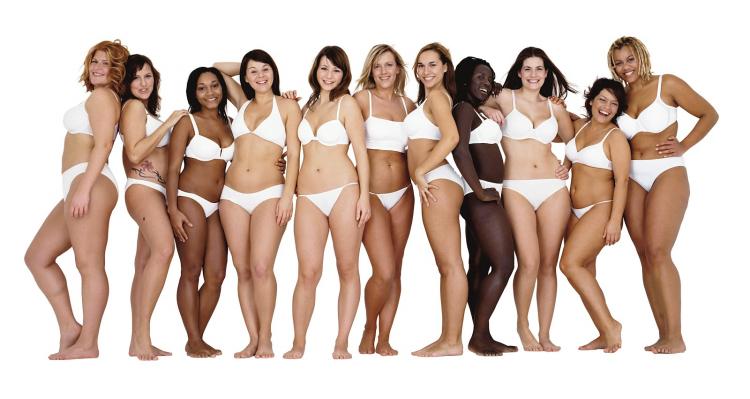I Am Beautiful No Matter What They Say

Advertising has a century-long history of selling beauty products to women by playing off of insecurities, strategically hinting that the consumers' attractiveness will remain insufficient until she purchases a certain product. Over the last decade, however, beauty advertising has taken an interesting turn. The new and incredibly successful trend is to play off of women’s insecurities in the opposite way, but to disguise it as social change.
Many of the same brands that originally enforced unattainable beauty ideals are now condemning those standards while pushing heavily towards an idea of “loving the skin you’re in.” This increasingly popular style of beauty advertising presents a number of issues, the most troubling being this: women are still told that their over-arching happiness revolves around feeling physically beautiful.
The “love the skin you’re in” conversation went viral in 2005, beginning with Dove’s over a decade-old “Real Beauty” campaign (though it could certainly be argued that Christina Aguilera beat Dove to it with her timelessly impactful 2002 hit single, Beautiful).
Here's what happens to us fragile women when we see a Dove “Real Beauty” ad: we experience the life-altering revelation that we’re not the repulsive trolls we initially thought; we weep steaming hot tears of relief because finally, after a lifetime of torment, we’ve found confidence in our own skin; and finally, we go forth to live lives of success and happiness with our new, “Screw society’s beauty standards!” mantra, because we’re gorgeous the way we are. I once was lost but now I’m found, I was blind but now I see. And it’s all thanks to Dove.
Not surprisingly, numerous other companies have followed suit, including the American Eagle-owned Arie with their #ArieReal – “The Real You Is Sexy” campaign, Victoria Secret with their laughable “A Body For Every Body” ads and Nike's "real women" ad series. Since the launch of Dove's "Real Beauty" campaign 11 years ago, the company's value has sky rocketed from 2.5 billion to 5.8 billion USD. Arie's sales shot up by 9 percent once they stopped photoshopping their models.
Celebrities are also hopping on the bandwagon, with Demi Lovato’s no-retouch, no-makeup, no-clothes Vanity Fair photoshoot last week.
This push towards a revision of beauty standards was a step in the right direction ten years ago; it created buzz around the very real psychological, and subsequently physical, damage that the media inflicts on girls and women through unrealistic images. In 2015, though, we can do better. Here is the issue we now face: pushing women to rebel against standard advertising and be comfortable with their physical appearance still implies a direct correlation with body image and overall happiness. In Dove's Sketches ad, one woman concluded that feeling beautiful "couldn't be more critical to your happiness," thus more women should realize how beautiful they are. Apparently, women can't be happy unless they feel physically attractive, and Dove isn't going to let you forget it. Why? Because they are a beauty product company.
There is a reason that we don't see viral ads telling women, "You are intelligent," or "You will have a wildly successful career," or "You have interesting things to say." This is because society puts more pressure on women to be physically attractive than to be interesting, intelligent, or successful, so ads telling women to ignore beauty standards have the utmost emotional impact. Appearance-centric advertisements such as Dove's aim to convince the consumer that if they believe they are attractive, happiness will follow. Women’s insecurities are still being exploited in order to sell beauty products, it is just happening in a more discrete way. The issue is rooted deeper than merely an unrealistic standard of beauty.
Instead of focusing a tidal wave of attention on "real beauty," the next generation should be taught that physical appearance is exponentially less important than it's been made out to be. In Always' Like A Girl ad from 2014, physical beauty is not mentioned. Instead, Always claims to be "Championing confidence" with their "Like A Girl" campaign, and they do so by demonstrating women's strength. Likewise, Glamour magazine's "The Power Of An Educated Girl" campaign aims at expressing the importance of female education and raises awareness for the 62 million girls worldwide who are deprived of it.
Advertising needs to move past the "real beauty" trend and promote attributes that are extensively more significant, impactful, and fulfilling than appearance. When we reach the point where the importance of women's psychical attractiveness is recognized as equal to that of men’s, we can sit back, pop a $2,000 Krug, and deliver a lengthy toast to breaking the mold. But as of now, we’re handing Dove a gold medal when all they deserve is a slot in the Olympic Trials.
(Photos: Arie, Vanity Fair, Adweek)










